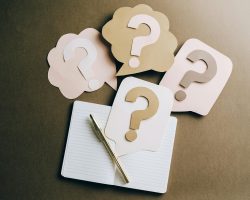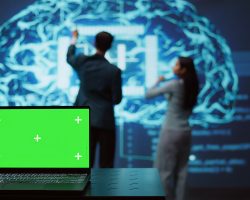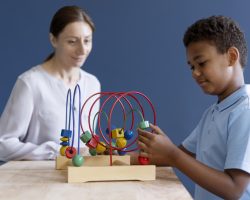Words and Worries

This is an excerpt from Misnamed, Misdiagnosed, Misunderstood by Linda Karanzalis, Board-Certified Cognitive Specialist.
Most people learn nonverbal and social communication automatically and intuitively through visual observation and role-modeling of others, a process that begins in early childhood and continues throughout the school years. However, people with Nonverbal Learning Disorder (NVLD) have great difficulty understanding nonverbal communication such as facial expressions and hand gestures.
When NVLDers have trouble grasping what others are saying, they may interrupt and question them to get the words they desperately need for comprehension. This can be a frustrating experience for both the speaker and listener, causing them to become irritated with each other. Many NVLDers have reported to me that their questions have caused others to feel interrupted, overwhelmed, challenged, or disbelieved. If their questions don’t stop, NVLDers may be accused of being argumentative or not trusting that what the other person says is true.
In addition to misunderstanding what the other person is saying, an NVLDer, as well as those with ADHD and auditory-processing disorders, may be unable to wait until the speaker is finished before asking questions. Their brains need more time to process and understand the initial information, assimilate new information, and fill in the gaps. Many NVLDERs need to ask questions before a person has finished speaking. Yet, waiting until the end of the other person’s statement may leave them more lost, confused, and embarrassed than if they had been able to process the information in chunks along the way.
If you have NVLD, consider sharing that information with the speaker. You might say, “I process language differently so I may need to stop you when you are in the middle of speaking to be sure I comprehend what you’re saying or to clarify by asking you questions. I know it might sound like I am not listening or am being rude but I am really just trying to make sure we understand one another so I can respond appropriately.” You can also rehearse prepared one-liners to use when communication challenges come up, such as “I know that this might seem off topic but…” or “Thank you for sharing that with me. Do you mind if I take a minute or two to think about it before I respond?”
There will be times when you’ll need to ask close-ended questions to get the facts you need. However, you’ll also need to incorporate reflective listening (RL) skills into your communications strategy toolbox. RL is not based on asking questions, but rather on clarifying what someone is expressing (needs, beliefs, feelings). This is done by repeating to the person what they said in your own words. If you have not understood them, they can clarify what they said for you. RL makes for harmonious communication and will improve your relationships. It’s an excellent tool for NVLDers of all ages.
Prior to being diagnosed with NVLD, many people often either chalk up the negative responses of others to them as isolated incidents or take on the blame for a specific issue themselves. In other words, they don’t know that their difficulties processing communication may be the cause of the negative responses.
Over time, most NVLDers will figure out the miscommunication connection from the frequency of their conflicts with different people in unrelated environments. They may become introspective and start their own research into NVLD. They may self-diagnose, reach out for help from others, seek a professional evaluation, or receive feedback from close friends or family members.
#nvld #nonverballearningdisorder #nonverballearningdisability #learningdisabilities #aspergers #neurodivergent #autism #adhd #neurodiversity #anxiety #inclusion #adhdawareness #specialneeds #adhdsupport #adhdwomen #adhdmom
Linda Karanzalis, Board-Certified Cognitive Specialist is the author of Misnamed, Misdiagnosed, Misunderstood, a new book on Nonverbal Learning Disorder and other brain-based challenges.
Dr. Ned Hallowell, a psychiatrist, a world-renowned expert on ADHD, and the New York Times best-selling author of Driven to Distraction says, “Linda’s book is vivid, compelling, full of heart and fresh understanding. Karanzalis replaces suffering with clarity and triumph for the millions of people with NVLD.”
Linda, who has NVLD and ADHD, has worked for more than 25 years with individuals of all ages with NVLD, ADHD, learning disabilities, and those on the autistic spectrum. As an author, podcaster, presenter, learning specialist, and ambassador for the NVLD Project, she provides validation, awareness, solutions, strategies, and, most importantly, compassion to the millions who live with neurodiversity. Find out more about her story and book at www.lindakaranzalis.com.
Follow Linda Karanzalis through her social media accounts:

Join the NVLD and NeuroDivergent Facebook Support Group
 Linda Karanzalis, MS
Linda Karanzalis, MS
Linda Karanzalis, MS, is a former special education classroom teacher with over 25 years of experience in the areas of learning disabilities, ADHD, social-emotional learning, social skills training, and behavior management














